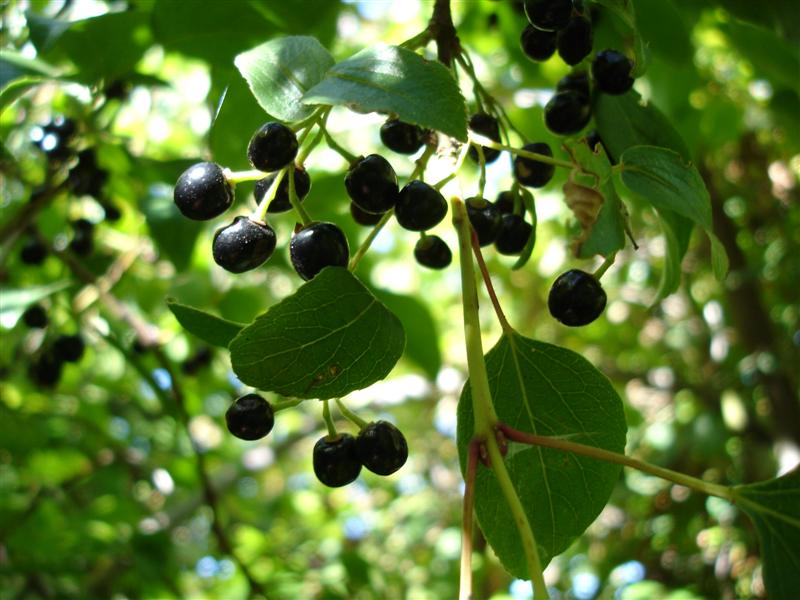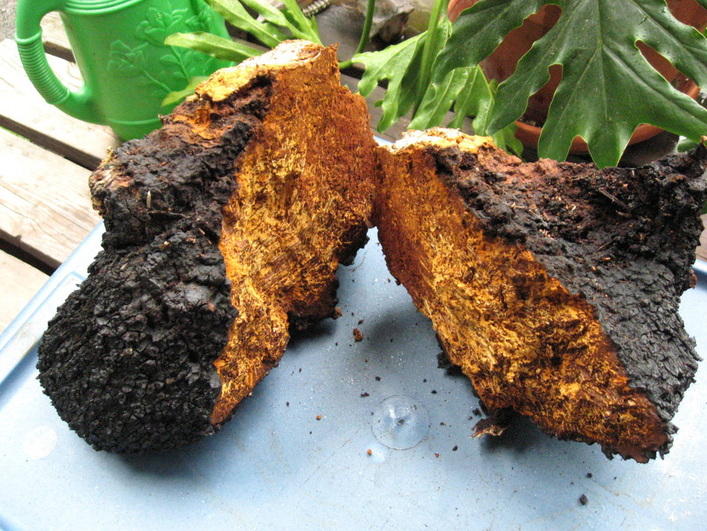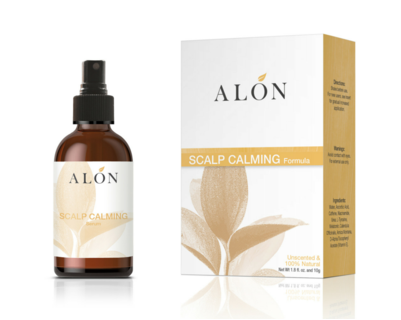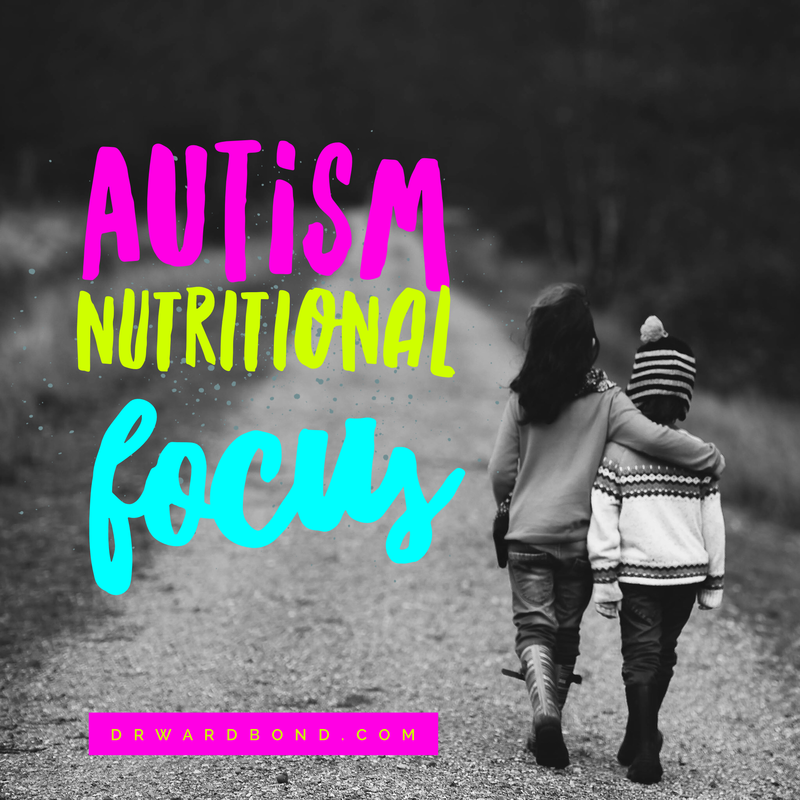|
An interview with Ward W. Bond, PhD about Maqui Superberry
1. Dark red, blue, and purple fruits and berries have always been considered to be especially healthy. Why are deeply pigmented fruits so good for us? They contain antioxidants called ANTHOCYANINS and POLYPHENOLS. These types of antioxidants help to reduce inflammation and improve joint mobility. Can help reduce allergic reactions. Boost immune function and cardiovascular health as well as slow down the signs of aging by protecting cells from oxidative damage. 2. Let’s talk about anti-oxidants. Why are antioxidant foods so important to maintaining good health? As we age, our cells continue to be affected by free radicals; our organs begin to degenerate and aging accelerates. The body has built-in defense mechanisms to protect itself from free radical damage, but eventually, aging depletes the body’s ability to keep oxidants at bay. Antioxidants are health-giving molecules found in abundance in many fruits and vegetables. Throughout the ages, cultures from around the world have been consuming deep colored berries as they have been recognized as sources of longevity and healthy living. Emerging science suggests that unstable molecules called free radicals the enemies to our health may be linked to many health imbalances, and is a leading cause of aging and poor health. 3. Let’s review the relative antioxidant levels of a few popular fruits: Apples; Grapes; Blueberries; Raspberries; and Blackberries. Maqui Superberry liquid supplement contains a very high ORAC value. Independent lab test conducted at Brunswick showed the following result.
4. There is a group of deeply-colored berries which have been dubbed “superberries”. What are superberries and where are they grown? Superberries are high in compounds called anthocyanins, which are antioxidant polyphenols. The reason they deliver these compounds is because they are deeply purple, blue and red, and anthocyanins are responsible for their color. Berries also tend to be extremely high in vitamin C, often more so than oranges. The fiber they contain, pectin, is particularly beneficial for digestive health, and some berries contain enough fiber to make a very significant contribution to daily intake. Most of the superberries are grown in South America. This is due to the high solar sunshine and cold nights. This climate helps to create strong flavors in the berries and create the highest levels of antioxidants. 5. The deep purple Maqui berry has been “recently discovered” by Westerners a few years ago, although it’s been consumed by the natives of Chile for hundreds of years. Tell us about the berry and its history. Maqui berry has been traditionally used by the Mapuche Indians for a variety of ailments such as sore throat, diarrhea, ulcers, fever, diabetes, tumors and other ailments. Recently, our researchers from University of Chile had found Maqui to support healthy inflammatory support and is a natural COX-2 inhibitor. The Mapuche are the only culture never to be defeated by an outside foe. They defeated the Spaniards for 300 years and the Spaniards also testified that it was the drinking of Maqui seven times a day by the Mapuche that must have given them their endurance and strength. 6. Scientists and researchers are taking a good look at the Maqui because of its tremendously high antioxidant content, higher than any other in the world. What are the researchers discovering that the berry or its extract can do for our health? While I was in Chile, I had the opportunity to interview Dr. Juan Hancke, the chief research scientist from University of Chile, who is also the head scientist for CTI Consortium, a non-profit organization that has recently obtained a $5 million grant from the World Health Organization to conduct additional research on Maqui berry. Remember when Vioxx was taken off the market due to side effects? Vioxx was a chemically-made COX-2 inhibitor. Nature has provided us with many natural COX-2 inhibitors and Maqui is the strongest one. Inhibiting COX-2 means you will have reduced pain making it a great addition for those with arthritis. When you provide antioxidant protection to your joints, you will reduce cartilage damage caused by aging. Osteoarthritis and Rheumatoid Arthritis Also, by reducing COX-2 enzymes in the body, you reduce your risk for cancer. Many researchers are looking at the link between using COX-2 inhibitors in cancer treatment. Some researchers have found that it increases the longevity of a cancer patient’s life by 50%! Maqui berry had been traditionally used by the Mapuche Indians to treat cancer & ulcer. Dr Juan Hancke & his scientific team from University of Chile conducted cancer research with maqui berry concentrate on CACO2 (human colon cancer cells) to verify its anti-cancer activity. Dr Hancke’s team showed that Maqui berry is the most effective at eliminating 100% of human colon cancer cells. Researchers are very encouraged by the findings as compounds that show good activity against cancer cells in a model system are most likely to have beneficial effects in our bodies. 7. What does the Maqui berry and its juice taste like, and how can listeners taste it for themselves? Maqui berry is the best tasting berry I have ever eaten or drank. The taste isn’t sugary sweet or sticky like grape juice. It taste better than Acai which you’ll find on the market that it’s always mixed with other juices because it doesn’t taste all that great by itself. I mix it in water or even my yogurt for lunch. It’s great for adults and children! For more information on the medicinal use of Maqui - http://www.herbalultra.com
0 Comments
by Ward W. Bond, PhD
Chaga is an herbal plant that grows on the outside of birch trees in Siberia and northern regions of Canada. It is a very hard, crusty formation that resembles burned charcoal. How it grows is almost cancer-like as it draws nutrients from the tree to grow, but it doesn’t kill the tree. What it will do is provide amazing healing power to mankind including killing cancer. Nature sure confounds the wisest of researchers and continues to amaze us. I was introduced to Chaga by Dr. Cass Ingram as he is a strong proponent of the herb and its healing powers. Chaga is rich in antioxidants called phenols. In research, it this property has shown to have very positive anti-inflammatory and immune boosting effects. There still needs to more research done on Chaga and its properties, but past Russian studies have shown it cured psoriasis, a condition that still baffles doctors today. A recent study showed Chaga inhibiting liver cancer cell growth and may help in killing other forms of cancer. Again more studies need to be done. Chaga is an herb I take every day. Yes, I understand the immune boosting effects, but many don’t write about one of the most amazing effects from taking Chaga daily. The energy, stamina and endurance it gives a person very remarkable. People who take it like me feel they have gotten their life back. Want to hear something even more remarkable about Chaga? This herb actually increases your motivation to get things done. Are you avoiding cleaning that closet you keep walking by? Well, Chaga has the ability to motivate us in doing things we keep avoiding. I called this herb the ultimate ‘anti-procrastinating’ home remedy. Need an extra kick in the morning to get through the Monday morning blues, count them gone once Chaga enters your system. What I’ve personally found out is that Chaga works in as little as thirty minutes to get you going. We all look at remedies and foods to increase our energy, but with stress, anxiety, fear and depression are so rampant in our society, we need a little kick in the behind to move us forward. Chaga is the kick we all need. Once your motivating gets turned on, you find yourself getting things done and you ignore the things that stress you out. When we get things done, we feel better and we feel accomplished, even if we just conquered that messy closet. Who knows, it could motivate you to inspire mankind or win the Nobel Prize. Just give Chaga credit in your acceptance speech, it’s that good. I love it! And you will too. Check out the Chaga products from North American Herb & Spice by Ward W. Bond, PhD
Awhile back I wrote an article called “Burning Scalp: Substance P & Pain” and it has increased awareness of a problem that thousands upon thousands of people are currently suffering with and with no solution in sight. In the article, I laid out a nutritional plan to help reduce the irritation of the scalp using nutrients to remove excess Substance P and to lower elevated histamine levels. The plan has helped many get the relief they need, but it’s not a 100% cure since we are all individuals with diet and stress playing a huge role is finding the sweet spot of relief. You see, I have been suffering with this type of condition for the last 3 ½ years and I’ve traced it back to my elevated stress levels. After many trial and errors of diet and remedies, I’ve been able to get relief 95% of the time. I’m one of the lucky ones. I hear the numerous stories of people who are distraught over the burning pain and the hair loss, especially the women. Now there’s finally a product that addresses this issue from a topical standpoint. As I was scanning my Twitter feed one day, I came across a topical solution from ALON Labs called ‘Scalp Calming Formula’. The moment I saw the name, I immediately ordered it and couldn’t wait to try it. When it arrived, it came in two bottles, one with the activating liquid and the other with the herbal solution. I mixed both according to the directions provided. I immediately applied as I was not going to wait! I filled the dropper and applied it to the parts of my scalp that bother me the most such as the front hairline and the back top edge of the scalp, but I did apply it all over as I wanted to give it my best shot. Lo and behold, it works! It only took a few minutes to feel the difference. Let me say this again. IT WORKS! What did it actually do? It relieved the itching scalp, reduced scalp redness and promoted improved hair health. To tell you a secret, I believe it actually improve the body of my hair and gave it a little more pep. Skin or scalp conditions must be addressed from the inside out. Healing always comes from the inside, but ALON Labs Scalp Calming Formula is the topical application that I’ll be adding to my nutritional plan and it should be added to yours too. It’s very affordable so it won’t break the bank. I am so thankful that someone was bold enough to create a product that addresses a portion of the population that is suffering in silence. Ladies and gentleman, take it from me, it’s worth the good ole college try. You’ll be pleasantly surprised and more importantly, you’ll feel better. It is time to apply it topically and time for you to apply that smile that belongs on your face. For more information about ALON Labs’s Scalp Calming Formula The Alón Scalp Calming Formula represents the latest science in fighting the main culprits of scalp aging - chronic inflammation and sun induced genetic damage. Our serum is the culmination of intense research and testing that uses targeted ingredients in a synergistic approach to address the underlying mechanism of scalp itchiness, redness, and to promote hair health. http://www.alonlabs.com/collections/products/products/scraping-calming by Ward W. Bond, PhD
Autism is a developmental disability that typically involves delays and impairment in social skills, language, and behavior. Autism is a spectrum disorder, meaning that it affects people differently. Some children may have speech, whereas others may have little or no speech. Less severe cases might fit the DSM-IV criteria for Pervasive Developmental Disorder (PDD) or Asperger’s Syndrome (these children typically have normal speech, but they have many “autistic” social and behavioral problems). Autism literally means “aloneness,” or living in one’s own world. Nutritionally, autistic individuals can have a poor diet, but this is usually due to the parents and not the child’s own decision about food. I applaud many parents who have researched the nutritional needs of their autistic child and how a healthy diet can improve all aspects of the child’s condition. Other parents who have received the diagnosis that their child is autistic, the doctors don’t really give nutritional advice on how a poor diet versus a healthy one can have dramatic effects upon the child’s learning and social skills as well as helping them have healthy digestion, muscle tone and improved sleep. The Autism Research Institute supports an integrative medical approach to treating individuals on the autism spectrum. These approaches include:
We will focus on the nutritional support nutrients in this article as the nutritional needs for autistic individuals can fill volumes of books. Nutritional Support DMG (Dimethylglycine)
One reason DMG affects so many areas in the body are because it contributes to methylation, a biochemical process essential to life and necessary for good health. Through trans-methylation (the transfer of a methyl group from one molecule to another), DMG supplies methyl groups for many of the modifying, building, detoxifying, recycling, activating, and protecting reactions that change the structure and function of many components in the body. As a source of methyl groups, DMG causes certain critical chemical reactions to proceed more efficiently. The dose of DMG can range from 125mg to 1,000mg per day. It is wise to work with a health professional well versed in DMG and autism. Vitamin B6 This nutrient plays an important role in converting food into energy and helping the body metabolize fats and proteins. The B vitamins are also important for healthy hair, skin, liver, and eyes.
Dosage of vitamin B6 varies from 100-600mg and should be complimented with the other B vitamins. Many use a B-complex formula with extra B6. Magnesium
Absorption of nutrients depends largely on intestinal health, which seems to be a big problem with the majority of autism cases. If your child experiences:
The dose of magnesium ranges from 800-2,000mg per day. It is wise to take the magnesium and vitamin B6 simultaneously to improve absorption and function of both nutrients. While no patient has been cured with the vitamin B6 and magnesium treatment, there have been many instances where remarkable improvement has been achieved. In one such case an 18-year-old autistic patient was about to be evicted from the third mental hospital in his city. Even massive amounts of drugs had no effect on him, and he was considered too violent and assaultative to be kept in the hospital. The psychiatrist tried the B6/magnesium approach as a last resort. The young man calmed down very quickly. The psychiatrist reported at a meeting that she had recently visited the family and had found the young man to now be a pleasant and easy-going young autistic person who sang and played his guitar for her. Other Nutrients to Consider Essential Fatty Acids Our brains are 60-70% fat and much of that fat needs essential fatty acids to be healthy. EPA, DHA and GLA are the vital essential fatty acids the brain needs to maintain and improve its overall function. There have been numerous studies using essential fatty acids for autism, but the improvements expected have not been seen. This does not mean essential fatty acids are not needed, but just the opposite. They are needed daily to help the brain to function at a healthy level and to keep cortisol in balance as well as reduce brain inflammation. For more information on clinical studies involving essential fatty acids and autism please follow this link - http://www.omega-research.com/research11.php?catid=2&subcat=48 Probiotics The gastrointestinal tract microflora is composed of more than 400 identified species and at least another 400 yet uncultured species. This highly complex community is integral to normal human development and health. The gastrointestinal microflora mostly consists of indigenous native species and healthful microorganisms that colonize the bowel only when they are consumed on a regular basis. A small percentage of the microflora has the potential to cause disease. All these microorganisms normally coexist in a balanced, complex community and promote normal gastrointestinal function, provide protection from infection, supply nutrients and vitamins, facilitate mineral absorption, modulate immune function, and metabolize cholesterol, bile salts, hormones and drugs. However, this delicate microecological balance can be disrupted by an array of factors including inadequate dietary intake of essential probiotics, nutritional deficiencies, chronic overgrowth of pathogenic microbes, stress, toxins, and the use of medications including antibiotics. Once the normal intestinal microflora is disrupted, a person becomes susceptible to a variety of infectious, allergic, autoimmune, and inflammatory diseases. Much research is now being revealed that common cognitive/behavioral disorders are caused by an unhealthy gut flora and toxic overload. Mental and behavioral related issues are largely intestinal and gut related. If the gut health isn’t healthy, neither will one’s mental health including autistic individuals. Researchers at the California Institute of Technology have shown for the first time that poor gut health may actually contribute to the disorder. They reported in the journal Cell that an experimental probiotic therapy alleviated autism-like behaviors in mice and are already planning a clinical trial. Arizona State University researchers analyzed the gut bacteria in fecal samples obtained from autistic and normally developing children. They found that autistic participants had many fewer types of bacteria, probably making the gut more susceptible to attack from disease-causing pathogens. Other studies have also found striking differences in the types and abundance of gut bacteria in autistic versus healthy patients. In an early study, it was revealed that women who get the flu during pregnancy double their risk of their child getting autism. Researchers decided to give a mock virus to pregnant mice and actually induced autistic mice. The following results were shocking. The mouse pups went on to develop so-called "leaky gut," in which molecules produced by the gut bacteria trickle into the bloodstream, possibly reaching the brain—a condition also seen in autistic children. But how did these bacteria influence behavior? To find out, Hsiao analyzed the mice's blood. The blood of "autistic" mice contained a whopping 46 times more 4EPS, a molecule produced by gut bacteria, thought to have seeped from their intestines. What's more, injecting healthy mice with 4EPS made them more anxious. A similar molecule has been detected at elevated levels in autistic patients. The researchers then laced the animals' food with B. fragilis, a priobiotic that's been shown to treat GI problems in mice—and the results were jaw-dropping. Five weeks later, the leaky gut in "autistic" mice had sealed up, and the levels of 4EPS in their blood had plummeted. Their gut microbiomes had come to more closely resemble those of healthy mice—and so did their behavior. They were less anxious and more vocal, and stopped obsessively burying marbles in their cages. One must not overlook the importance of using probiotics in autistic individuals. The use of probiotics is not necessarily used to improve social skills or improve speech, but for improving absorption of other nutrients such as vitamins, minerals, essential fatty acids and amino acids. All of these nutrients are for overall health of the autistic individual as well as leading to improved social skills, learning capabilities and general well-being. The diet must be corrected and gluten-free and casein-free diets are highly recommended for those with autism. We will cover these diets in relation to autism in a future article. |
Archives
May 2022
|




 RSS Feed
RSS Feed